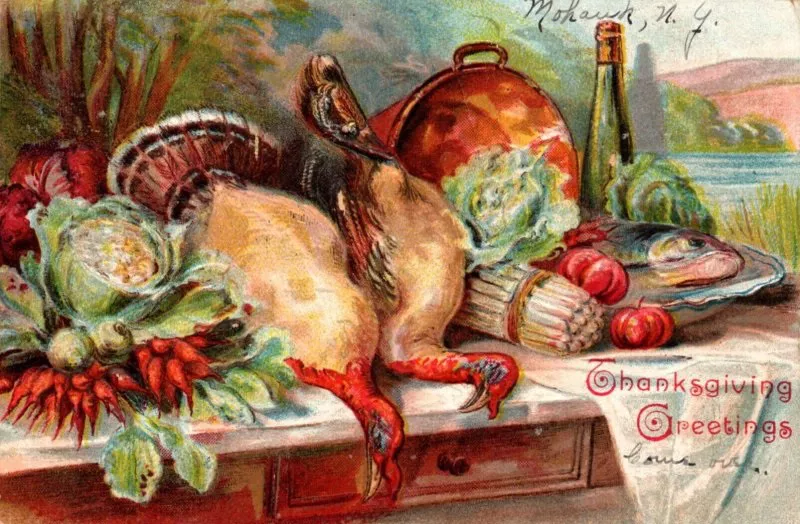Thanksgiving Day in 1907, celebrated on Thursday, November 28th, represents a pivotal moment in American history and cultural tradition. This article explores the origins of Thanksgiving, its evolution into a national holiday, the social and political climate of 1907, regional variations in observance, and the enduring impact of this annual commemoration on American society.
Introduction: The Origins and Evolution of Thanksgiving
Early Colonial Beginnings
Thanksgiving traces its roots to the early 17th century:
Pilgrim and Native American Relations: The 1621 feast in Plymouth, Massachusetts, between Pilgrims and Wampanoag Native Americans symbolizes gratitude and cooperation.
Colonial Proclamations: Various colonial leaders declared days of thanksgiving for blessings such as bountiful harvests and military victories.
National Recognition and Abraham Lincoln’s Proclamation
President Abraham Lincoln proclaimed Thanksgiving a national holiday in 1863:
Civil War Context: Lincoln’s proclamation aimed to foster unity during a divided nation and express gratitude amid the turmoil of the Civil War.
Continued Observance: Thanksgiving became an annual tradition celebrated on the final Thursday of November, marked by family gatherings and communal feasts.
Social and Political Climate of 1907
Industrialization and Urbanization
The early 20th century witnessed rapid industrial growth and urban expansion:
Economic Transformation: Industrialization led to urban migration and changes in agricultural practices, influencing Thanksgiving traditions.
Labor Movements: Workers’ rights movements and labor strikes highlighted social tensions amidst economic prosperity.
Progressive Era Reforms
The Progressive Era saw reforms in social, political, and economic arenas:
Social Welfare: Advocacy for child labor laws, women’s suffrage, and public health reforms reshaped American society.
Environmental Conservation: Conservation efforts and national park establishment reflected growing awareness of natural resources.
Thanksgiving 1907: Cultural Traditions and Regional Variations
Rituals and Customs
Thanksgiving traditions in 1907 included:
Family Gatherings: Centralized around home-cooked meals featuring roast turkey, stuffing, cranberry sauce, and pumpkin pie.
Community Celebrations: Parades, football games, and church services emphasized communal gratitude and unity.
Regional Flavors
Different regions in the United States celebrated Thanksgiving uniquely:
New England Traditions: Pilgrim-themed events and historical reenactments honored early colonial heritage.
Southern Traditions: Featured regional dishes and cultural influences from African American and Native American communities.
See also: What Day Of The Month Was Thanksgiving In 1987?
Reflections on American Identity and Unity
National Unity and Gratitude
Thanksgiving fostered a sense of national identity and unity:
Shared Heritage: Americans of diverse backgrounds united in gratitude for abundance and communal blessings.
Immigrant Contributions: Culinary and cultural contributions enriched Thanksgiving traditions across generations.
Critiques and Debates
Critiques of Thanksgiving’s historical narratives emerged:
Indigenous Perspectives: Challenges to the Pilgrim narrative and recognition of Native American experiences.
Historical Revisionism: Debates over the portrayal of Thanksgiving in educational curricula and public discourse.
Modern-Day Observance and Evolution
Evolution of Traditions
Thanksgiving traditions evolved with changing social dynamics:
Commercialization: Retail promotions and the emergence of Black Friday reshaped post-Thanksgiving consumer behavior.
Culinary Innovations: Fusion cuisine and dietary preferences influenced contemporary Thanksgiving menus.
Community Engagement and Service
Thanksgiving promoted community service and charitable giving:
Volunteerism: Food drives, shelters, and community kitchens provided meals to those in need during the holiday season.
Civic Engagement: Public officials and community leaders emphasized gratitude and social responsibility.
Conclusion
Thanksgiving in 1907, and throughout its history, symbolized gratitude, resilience, and cultural heritage in American society. From its colonial origins to a national holiday celebrated by millions, Thanksgiving reflects enduring values of family, community, and national unity.
By exploring the historical context, cultural significance, and societal impact of Thanksgiving in 1907, this article illuminates its profound role in shaping American identity and communal traditions. As communities gather each year to give thanks and celebrate abundance, Thanksgiving remains a testament to resilience, inclusivity, and the enduring power of gratitude in shaping collective memory and national ethos.

